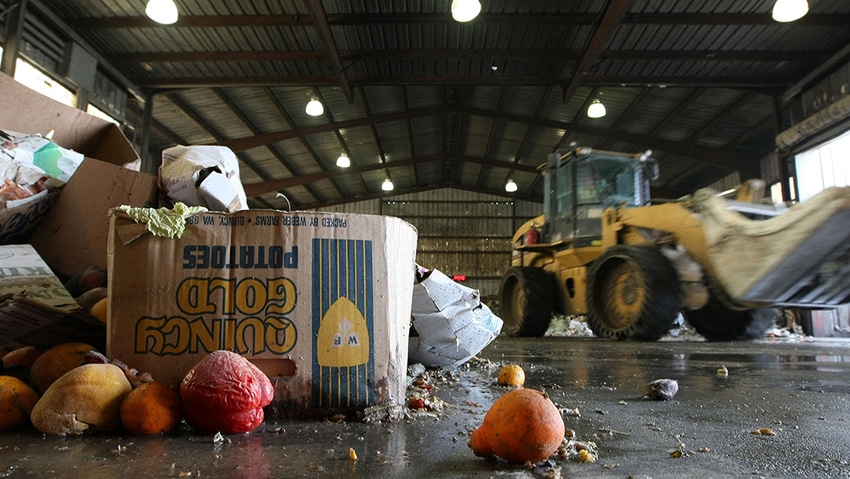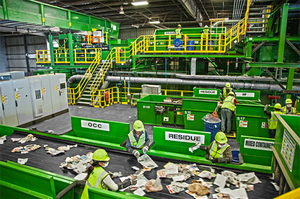Cities want to reduce landfill waste, address hunger in their communities, and address climate change.

Some local governments and nonprofits are addressing the issue of food waste through multipronged approaches, such as scalable consumer education programs and supports for businesses. Meanwhile, a new federal act has been introduced attempting to tackle all food waste types, with a spectrum of potential solutions.
“Cities want to reduce landfill waste, address hunger in their communities, and address climate change. Focusing on food waste will do all three,” says Darby Hoover, senior resource specialist, with the Natural Resource Defense Council (NRDC).
Hoover will speak at a WasteExpo session titled Solutions for Reducing Food Waste and Increasing Recovery: State Initiatives, Metrics and Data Analysis, Law & Policy, part of the Composting and Organics Recycling Conference and Food Recovery Forum, Monday, May 8, 10:30 AM in New Orleans.
The international nonprofit surveyed households in three cities to learn how residents buy, prepare and discard food.
By identifying types of foods that are wasted and why, it hopes to design educational campaigns advising on the most wasted items, including providing tips for storage, preparation of smaller portions and detailing recipes using leftovers.
NRDC will also develop various templates, designed based on research findings, to provide cities a standard information-gathering and measurement system.
“We are hoping more cities will use these tools so we can come up with a standard way to gather information,” Hoover says. “The more we can measure in similar ways, the more accurate a picture we can get of food waste in this country.”
Meanwhile, the organization is developing model policies and programs that cities can enact, while working to determine the amount of potentially recoverable surplus food.
On a federal level, the Bill Emerson Good Samaritan Food Donation Act helps to facilitate food donation while providing legal protection to donors and nonprofits who distribute food. It sets a uniform standard of minimal liability stating foods must be “apparently wholesome” and “apparently fit grocery products.”
Last year, the Food Recovery Act was introduced in Congress. It attempts to address food date labeling; strengthen the Bill Emerson Act; help create enhanced tax deductions for food donation; make composting a recognized practice under some United States Department of Agriculture incentive programs; and allocate funding for infrastructure to support food waste reduction.
Nicole Civita, professor of agriculture and food law at the University of Arkansas, is encouraged by this far-reaching, comprehensive attempt to tackle food waste by leveraging the law. Civita will also speak at WasteExpo.
Still, in light of deregulation across industries, Civita believes there is potential for more rapid change at the state level.
“State governments and municipalities can do a lot and many are, such as implementing organic waste bans,” she says. “Now the question is, what do they do with this food? [For instance] do they create composting or donate for human consumption? … Banning serves to drive their thinking about—and implementation of—solutions.”
The Oregon Department of Environmental Quality (ODEQ) identified nine projects for preventing food waste as part of the state’s strategic food waste reduction plan. Projects focus on efforts such as identifying causes, quantities and types of wasted food, developing public information tools and helping businesses and governments identify opportunities to reduce avoidable wasted food.
ODEQ will provide protocol for cities, states and businesses to measure their success in preventing wasting of food.
The agency is partnering with businesses to realize economic, social and environmental benefits of better food utilization by validating return on investments for waste prevention practices, says Ashley Zanolli, senior policy and program advisor, ODEQ.
And businesses can improve their bottom lines, Zanolli says, citing a recent report where 99 percent of 1,200 business sites saw positive returns on investment from practices to measure and prevent wasted food, with a median return of 14 to 1.
ODEQ also supports local government as it works toward the state organics diversion goal.
“It’s about building capacity for state and local governments to work together to reduce generation of avoidable waste,” she says. “It allows us to get to a place where we eat and share first and only compost what’s left.”
About the Author(s)
You May Also Like




